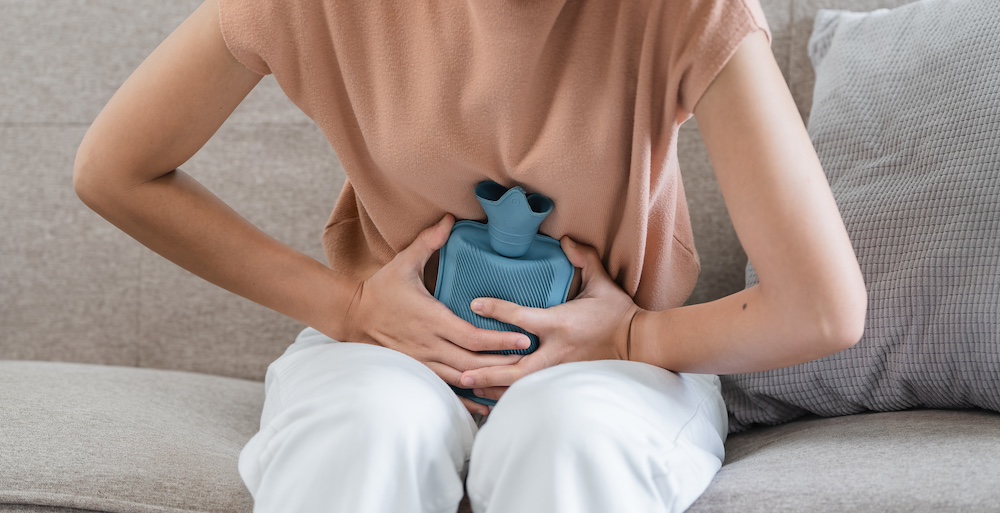Trendy Lifestyle Hacks
10 Ways To Stop Period Cramps
Menstrual cramps can be more than just a minor discomfort; they often interfere with daily activities and overall well-being. Understanding how to manage and alleviate this pain can make a significant difference in your quality of life during your period.
Fortunately, there are numerous strategies to address period cramps effectively. These methods range from dietary changes and physical exercises to stress reduction techniques and alternative therapies. By exploring and incorporating these 10 approaches, you can find relief from menstrual pain and regain comfort and control during your menstrual cycle. Whether you’re seeking immediate relief or long-term solutions, these strategies offer various ways to help you manage and ease period cramps.
1. Practice Yoga and Stretching
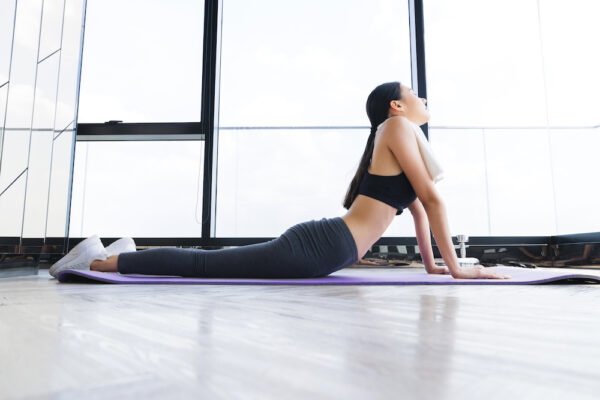
Yoga and stretching exercises can be particularly effective in relieving menstrual cramps by reducing muscle tension and improving blood flow. Specific yoga poses, such as the Child’s Pose, Cat-Cow Pose, and Forward Bend, can help stretch the lower back and abdominal muscles, providing relief from cramping. Incorporating regular yoga practice into your routine can also promote relaxation and improve overall well-being. Stretching exercises, especially those targeting the lower abdomen and back, can help ease discomfort and reduce pain.
2. Apply Heat
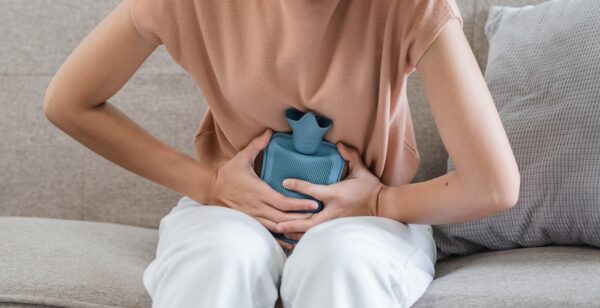
Heat therapy is a time-tested remedy for menstrual cramps. Applying heat to the lower abdomen can effectively relax the uterine muscles and improve blood flow, which helps ease pain and discomfort. You can use a heating pad, hot water bottle, or even a warm towel for this purpose. The warmth helps to alleviate muscle tension and reduce the intensity of cramps. Applying heat for 15-20 minutes several times a day, or as needed, can provide significant relief. For added comfort, consider using heat wraps or patches designed specifically for menstrual pain.
3. Stay Hydrated

Proper hydration is essential for overall health and can also help alleviate menstrual cramps. Drinking plenty of water helps prevent bloating, which is a common symptom that can exacerbate cramping. Hydration ensures that your body functions optimally, supporting muscle relaxation and reducing pain. Aim to drink at least 8-10 glasses of water daily. Herbal teas, such as chamomile or ginger tea, can also aid in hydration while providing additional soothing effects.
4. Adjust Your Diet
Your diet can have a significant impact on menstrual cramps. Consuming a balanced diet that includes fruits, vegetables, whole grains, and lean proteins supports overall health and can help reduce cramping. Foods rich in omega-3 fatty acids, such as salmon, walnuts, and flaxseeds, have anti-inflammatory properties that can alleviate cramps. Additionally, reducing your intake of salt, sugar, and fatty foods can help prevent bloating and discomfort. Eating smaller, more frequent meals can also help manage symptoms and maintain energy levels.
5. Avoid Caffeine and Alcohol
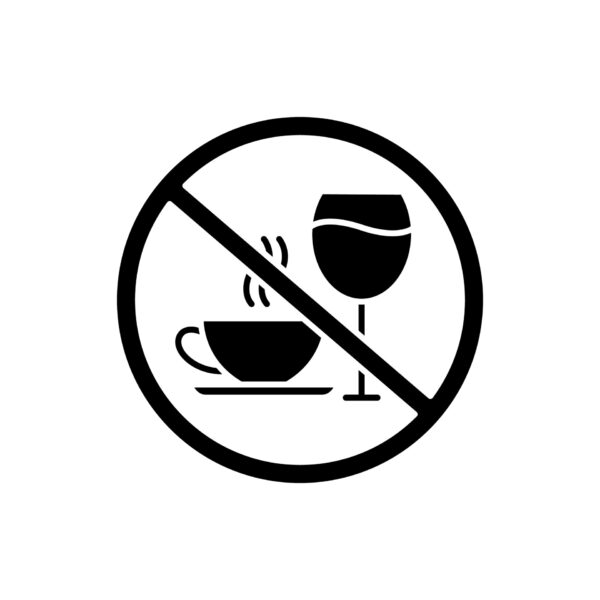
Caffeine and alcohol can contribute to menstrual cramps by increasing tension, causing dehydration, and exacerbating bloating. Reducing or eliminating your intake of caffeinated beverages, such as coffee and tea, and avoiding alcohol can help manage cramps more effectively. Opt for herbal teas or water instead, which can help keep your body hydrated and reduce discomfort. Paying attention to your diet and avoiding these substances during your period can improve overall comfort and alleviate symptoms.
6. Consider Acupuncture
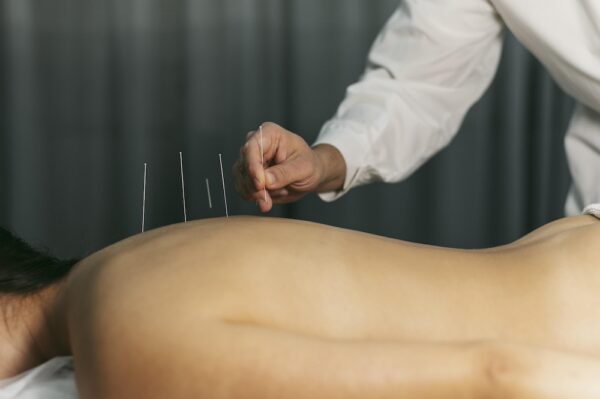
Acupuncture, an alternative therapy involving the insertion of thin needles into specific points on the body, has been shown to help relieve menstrual cramps for some women. Acupuncture works by stimulating the body’s natural healing processes, balancing energy, and promoting blood flow. If you’re considering acupuncture as a treatment option, consult with a licensed acupuncturist to discuss your symptoms and receive personalized care. Acupuncture can provide relief from pain and support overall wellness during your menstrual cycle.
7. Practice Stress Management
Stress can significantly impact the severity of menstrual cramps, so managing stress is an important aspect of relief. Incorporating relaxation techniques such as deep breathing exercises, meditation, or mindfulness can help reduce stress levels and improve your overall well-being. By addressing stress, you can alleviate the intensity of cramps and enhance your comfort during your period. Engaging in activities that promote relaxation and mental well-being can support your physical health and improve your experience during menstruation.
8. Exercise Regularly

Regular physical activity plays a crucial role in managing menstrual cramps. Engaging in exercises such as walking, jogging, or yoga helps release endorphins, which are natural painkillers produced by the body. Exercise improves blood circulation, reduces stress, and helps regulate hormone levels, all of which contribute to lessening menstrual pain. Even light exercise can be beneficial, so incorporating physical activity into your daily routine can help manage cramps and improve overall health.
9. Practice Deep Breathing
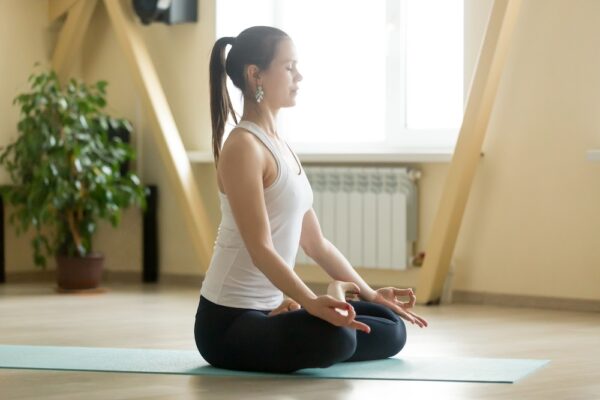
Deep breathing exercises are an effective way to manage menstrual cramps by reducing pain and alleviating stress, which can exacerbate cramping. By concentrating on slow, deep breaths, you can help calm your body and mind, promoting relaxation and easing discomfort. To make the most of this technique, incorporate deep breathing into your daily routine or use it as needed during painful episodes. This practice not only helps soothe cramps but also enhances overall well-being by reducing stress levels and fostering a sense of calm.
10. Consider Magnesium Supplements
Magnesium helps relax muscles and can reduce menstrual cramps. You can boost your magnesium intake by eating magnesium-rich foods like leafy greens, nuts, seeds, and whole grains. For additional relief, magnesium supplements—such as magnesium citrate, glycinate, or oxide—can be beneficial. Consult your healthcare provider to determine the right dosage and avoid potential side effects. Integrating magnesium into your routine can help alleviate cramping and improve comfort during your period.

